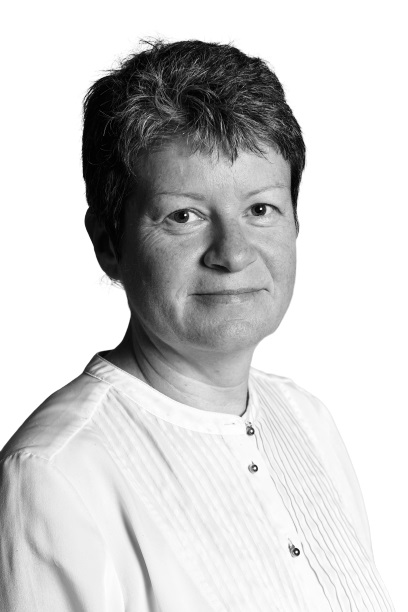This month has seen the publication of the Private Member’s Bill into parliament which is intended to enable terminally ill adults in England and Wales to seek medical assistance to end their lives. This is known as ‘physician-assisted dying’. This will be debated and voted on in parliament on the 29 November 2024. Katrina Vollentine is a Partner at Wollens and writes this expert overview.
Under this Bill, adults (1) diagnosed with a terminal illness and (2) who are expected to have less than six months to live and (3) who are ordinarily resident in the UK, registered by a GP and have been so for the preceding 12 months, can ask for assisted dying. As well as there being strict eligibility criteria, there are very strict formalities to be completed including obtaining certificates from doctors considering eligibility criteria, mental capacity, and competency to make the declaration. Ultimately, the declaration has to be approved by a High Court judge, and there is a time delay built into the process of at least 21-days in order to give time for reflection.
The MP introducing the Bill says that it contains the strongest safeguards in the world to prevent abuse. The Bill is limited to those with a terminal diagnosis and does not include the test of ‘unbearable suffering’ which has been a much-criticised part of Canadian legislation. The bill also clarifies that someone cannot be considered to be terminally ill by reason only of having a mental disorder and/or a disability (as defined in statutes).
The English parliament has rejected three attempts to introduce draft legislation for physician-assisted dying in the last decade. Before 2014, there were other draft bills or attempts to change the law to allow physician-assisted dying. The Netherlands became the first country to legalise assisted dying in 2002. The Dignitas Clinic in Switzerland is well known for providing assisted dying facilities with over 300 Britons traveling there to end their lives.
Since 2002, over 37 countries worldwide have brought in law or have obtained court rulings providing a defence for doctors. Hundreds of millions of people throughout the world now have access to physician-assisted dying. Commentators in the UK say that change in the law is a matter of ‘when’ and not ‘if’.
Assisted dying has long been a controversial topic, and there is a wide variety of views. There are only a few medical and legal ethical debates that are less polarising.
What is the issue?
Physician-assisted dying means having legal and regulated access to medical advice and measures to be taken to intentionally end a terminally ill patient’s life, without risk of prosecution of the medical practitioner, covering the following situations:
- Medical practitioners prescribing lethal drugs at the request of a patient who meets defined eligibility criteria, to enable that patient to self-administer the drugs to end their own life.
- Medical practitioners administering lethal drugs at the request of a patient who meets defined eligibility criteria, with the intention of ending that patient’s life. This is often called voluntary euthanasia.
In the UK it is a criminal offence for medical practitioners to do either, no matter how humanitarian the reason. Euthanasia is regarded as murder or manslaughter and carries a life sentence on conviction. It is a criminal offence for any third party to assist or encourage another person to commit suicide, whether or not a suicide occurs.
It is not an offence for a terminally ill person to commit, or attempt to commit, suicide.
Under the Human Rights Act 1998, there have been a few high-profile challenges in court to the law on assisted suicide. These cases argue, amongst other things, that the prohibition on assisted suicide breached Article 8 rights under the European Convention of Human Rights (the right to respect for private and family life – meaning that people have a right to self-determination). Whilst these cases have not been successful in securing declarations protecting those assisting the terminally ill adult from prosecution, judges have been clear that parliament must address the conflict between state intervention in this situation and a person’s right to self-determination where it is expressed in clear, settled, and informed terms.
Proponents for the bill say that that this debate is not about suicide, or the right to die – there is no such human right – but the ability to support someone to die in a comfortable and safe manner when they no longer have the choice to live.
Opponents say that enacting a law allowing assisted dying will ‘normalise’ physician-assisted death and lead to adults with a terminal diagnosis making decisions based on their wish not to become a burden to their loved ones.
Add to the already polarising debate, the pressing issues of the cost of treatments and palliative care, the difficulty of determining mental capacity and potential challenges in these emotive cases, the log jam in the court system; the fact that at present, changes to other legislation will be required – for example the Forfeiture Act 1982 (which currently says that individuals may not be able to inherit from the estate of a loved one, including inheriting their jointly owned property) and you need a hefty commitment of parliamentary time and consultation before a final decision is made. In doing that there also needs to be new codes of practice carefully drafted to support the Bill around assessing capacity, taking into account the effects of mental health disorders or depression, the information about treatment and care options, effective communication, and the practical arrangements for providing the substances permitted to be used and precisely what assistance can be given and by whom to enable their ingestion or self-administration.
Even if the Bill eventually becomes law, the process of getting a declaration permitting physician-assisted dying is likely to be stressful, lengthy, and consequently distressing for those involved. On one hand, the prospect of dying rapidly from a terminal illness is already distressing, but on the other hand, none of us knows what could happen next week, nor next month or year. Death is very much a part of life but it is difficult to tread the line between safeguarding the control of the process from abuse, ensuring that this is a clear and settled wish, and making the process accessible to all who want it.

Katrina Vollentine is a specialist within our Care and Capacity Team and assists where families might need support linked to this topic.
Please do contact us if have any questions in relation to the proposals that are being outlined.
We have a specialist team here at Wollens. Please contact Katrina or a member of the team on 01803 213 251 or email [email protected]



